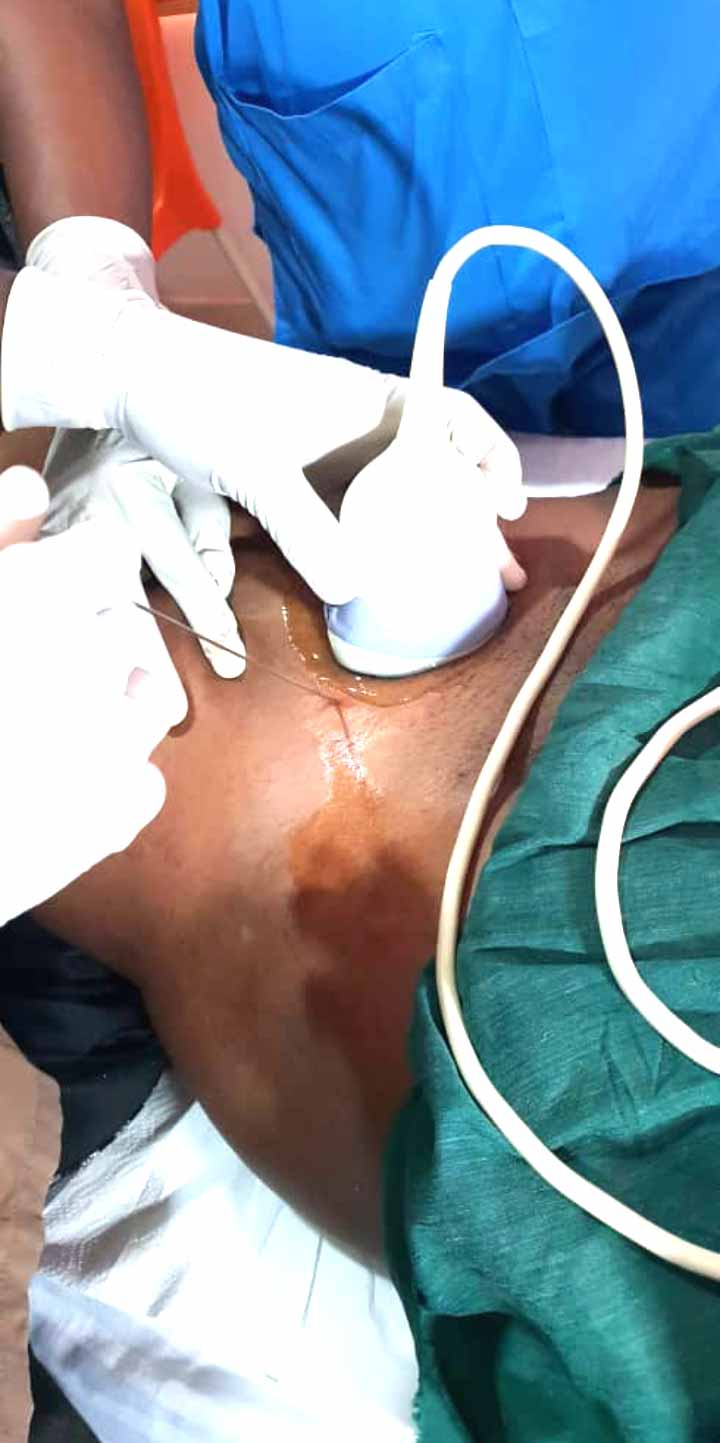
Chorionic Villus Sampling
What is chorionic villus sampling?
- Chorionic villus sampling (CVS) is a prenatal procedure that involves taking a small sample of the placenta tissue (Chorion villi),
- The sample is tested for abnormalities of the chromosome abnormalities, such as Down syndrome, single genes such as Sickle cell anemia, and many other genetic problems that may be present in the fetus.
Why would you need to have a CVS procedure?
- CVS is done after your health care provider has identified that your fetus has the risk of being affected by a genetic disorder, or hemoglobinopathy. The risk could be based on the following:
Family history such as previous delivery of an affected child, recurrent miscarriages,
Investigation that shows hemoglobin genotype AS in a couple, ultrasound findings of markers for chromosomal abnormality such as nuchal translucency, and mother with Rhesus D negative blood group, among other issues.
What are the steps in the procedure?
- The genetic counselor provides detailed education on all aspects of the condition at-risk and the procedure
- A pre-procedure scan is done to confirm that pregnancy is above 11 weeks and the placenta is adequate
- The procedures are performed through the mother’s abdomen in our centre, following 3 simple steps:
Cleaning of mother’s abdomen with disinfecting agents
Numbness of the skin and abdominal muscle using a small volume of anaesthetic injection
Passage of a fine needle through the mother’s abdomen to take a sample of chorionic villi under ultrasound scanning. This is a safety measure.
The procedure lasts 1 – 2 minute and afterwards we check that the fetal heart beat is normal.
The amount of villi obtained has no effect on the fetal development
What should I expect after the CVS?
- CVS is a safe and relatively complication-free procedure, if it performed under standard protocol.
- Miscarriage occurs in about 1% risk of pregnancies, similar to the risk during amniocentesis at 16 weeks.
- Mild abdominal discomfort, period-like pain, and very rarely a little vaginal spotting, may be experienced after the procedure.
- In the vast majority of cases, simple painkillers like paracetamol is all that is required, and the pregnancy continues without any problems.
- Generally, we advise bed rest for about 30 minutes after the procedure, avoidance of stressful physical activities for 3 days and sexual intercourse for at least 7 days.
- If there is persistence, exacerbation of symptom or development of temperature, medical advice should be sought
When can I expect to get the results?
- The result turn-around time will depend on the condition being tested. In common disorders such as Sickle cell anemia and Down syndrome, results should be available within 72 hours and 5 working days. However, there are instances that analysis would not be completed. The results for rare genetic defects take 2 weeks.
- You will receive notification of readiness as soon as result is ready before the assigned date
Will the procedure need to be repeated?
- In approximately 1% of cases the invasive test will need to be repeated because the results are inconclusive.
